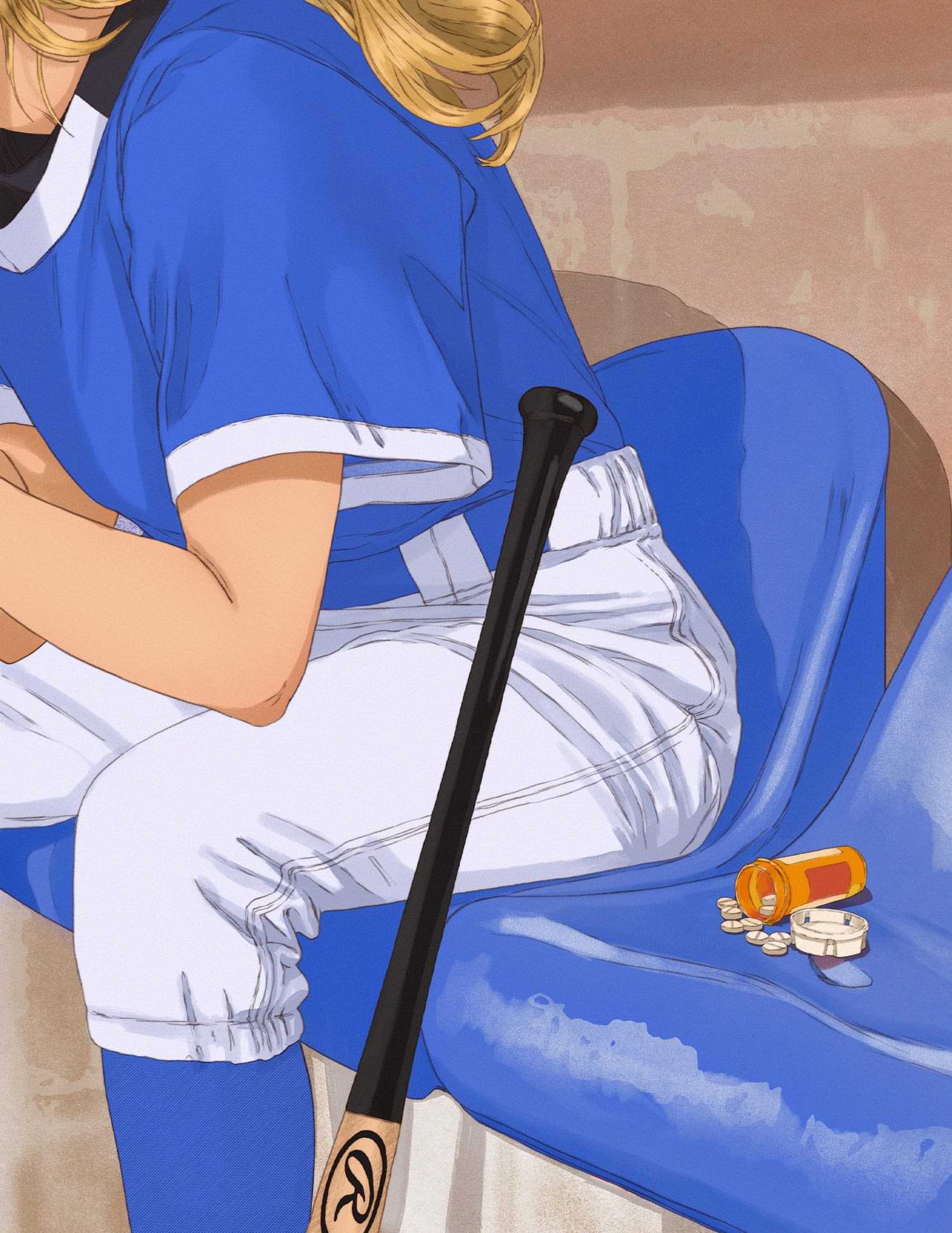The Walk On

Sports pharmacists ready to hit the field, earning their place on the team and demonstrating they’re ready to be in the game.



An athlete, by definition, is a person proficient in sports and other forms of physical exercise. Their specialty is the sport they play. As for the medical part, there’s a team for that. But is that team fully comprehensive?
To Athena Cannon, PharmD, (Pharmacy ’20), there’s one perspective missing. With a passion for the emerging field of sports pharmacy, the response she often hears is, “Athletes are healthy; they don’t take medications, therefore (pharmacists) don’t have a role in their care.”
“When we have myths that truly disregard athletes taking dietary supplements or athletes that are just like everybody else that (have) other chronic conditions (such as) paralympic athletes, we’re really excluding them from the interprofessional resources that we could be providing them,” Cannon says.
Toby Brooks, PhD, LAT, ATC, breaks down the medical team surrounding an athlete – strength coach, nutritionist, athletic trainer, team physician, etc. The medical team varies depending on resources, but Brooks recognizes the sports pharmacist as a valuable member missing — even in the most developed athletic programs.
According to the National Athletic Trainer Association, an athletic trainer’s specialty “encompasses the prevention, examination, diagnosis, treatment and rehabilitation of emergent, acute or chronic injuries and medical conditions.” They learn about pharmacology in school, but their knowledge is more along the lines of practicalities.
“What are the common and frequently used (medications), what are some of the side effects, what’s going to impact their training response,” explains Brooks, professor of athletic training in the School of Health Professions.
As for the team physician, their specialty is “in the prevention and care of musculoskeletal injuries and medical conditions encountered in sports,” according to the American Association of Orthopaedic Surgeons. Although they can prescribe medications, should physicians be the ones responsible for the prescribed medications and be knowledgeable about the drugs that are banned as well?
During the 2000 Olympic Games in Sydney, Australia, a teenage Romanian gymnast had her gold medal title stripped after she tested positive for pseudoephedrine, a decongestant. The team physician gave the gymnast the medication to treat cold symptoms, not for enhancement. Still, the International Olympic Committee had banned the drug as a stimulant at the time, although all sports-governing organizations did not universally ban it. If medication isn’t the team physician’s specialty, who can help guide their decision-making?
“A pharmacist is a highly skilled and trusted medication expert. They know and understand everything there is to know about drugs. Pharmacists undergo extensive education to understand the role that drugs play in different situations,” according to the Mayo Clinic College of Medicine and Science’s website.
Sports pharmacy takes this a step further by specializing in helping athletes navigate the various medications that are prohibited in their sports.
“The list is long, and unless you have a medical background, sometimes even a pharmacy background or a pharmaceutical research background, it’s tough to understand what you can and cannot take,” Cannon said.

Will pharmacists be welcomed to the sports team?
Since the athletic population is unique, Brooks says, they should not be medically treated the same as the standard population. Relying on outside consulting instead of an in-house, interprofessional team that knows the athlete and their history can be detrimental in the sports field.
“Not having that in-house, collaborative team creates a lot of hurdles and issues, and it ultimately makes the patient suffer,” he explains. “It usually means (their) outcome is not going to be as good, and it’s (going to) take (them) longer to get there in the process.”
Brooks shares the meaning behind his statement, “Time is so critical in athletics.” For those medical professionals who are engrained in the field, they inherently react to the immediacy with a sort of unwritten rule, “There’s good medicine, there’s bad medicine, and there’s sports medicine … we will get them care as soon as humanly possible,” he says.
At the highest level, the mindset is “do it yesterday,” Brooks says with profound certainty that there is no margin for error, especially in a sports climate where coaches are paid millions and professional athletes are paid hundreds or thousands of millions of dollars. “Time is never an excuse.”
That being said, interprofessional medical teams for an athlete should not be negotiable. “Health care professionals who understand the unique aspects of what it means to be an athlete (are) important,” Brooks continues. “The specialization allows you to build something more practical, meaningful, and hopefully, ultimately most effective for the patient.”
So, how can the sports industry help athletes redirect their focus on their specialty of sport?
To Brooks, the answer is simple — create an interprofessional, collaborative medical team with different areas of expertise. Each brings a perspective to the table, but each can’t necessarily do the job of another.
“We don’t have to be know-it-all’s. We can leverage what other people know. And build something better.”
Sports pharmacy is more prevalent in other countries, but the specialty is starting to claim space domestically. Cannon shares that Baptist Health South Florida and the University of Southern California have made steps toward leveraging the pharmacist’s expertise, giving them a seat at the table.
There’s an opportunity for all disciplines to work together and learn from each other, Brooks says, drawing from his experience. “I’ve learned some great things from strength coaches; I’ve learned some really valuable things from physicians willing to go the extra mile and teach me the why behind the what. And so that is what an interprofessional team is,” Brooks says.
Cannon reiterates this thought saying the more expertise brought to the table, takes the load off of other disciplines and allows them to focus on their specialty. Most importantly though, a pharmacist’s presence takes the pressure off the patient – the athlete.
Teammates look out for each other on the field; now’s the time for athletes to have teammates looking out for them in all aspects off the field. Give them what they need and get out of the way, concludes Brooks.
The Backstory
Before pharmacy school, Athena Cannon, PharmD, (’20) started on her sports pharmacy journey by watching community pharmacists compound medications for athletic teams. The experience lingered in her mind.
During her first year at TTUHSC, a discussion on geriatric and pediatric patients sparked a question. Learning about different body compositions and drug dosing, she wondered: Are athletes a unique population?
Cannon shadowed at a sports medicine clinic in Abilene, Texas, the sports medicine team at Texas Tech University, a back and knee surgeon for the Dallas Cowboys and at the International Olympic Training Center in Colorado.
“I started to collect nuggets that did point to the fact that athletes were a unique population and pharmacists could, in fact, help with navigating their medication needs.”
Cannon founded the U.S. Sports Pharmacy Group in 2022 to bring awareness to the field and provide pharmacy education that advocates for athlete health. The nonprofit brings together pharmacists from across the nation to network over a shared passion and curiosity – sports pharmacy.